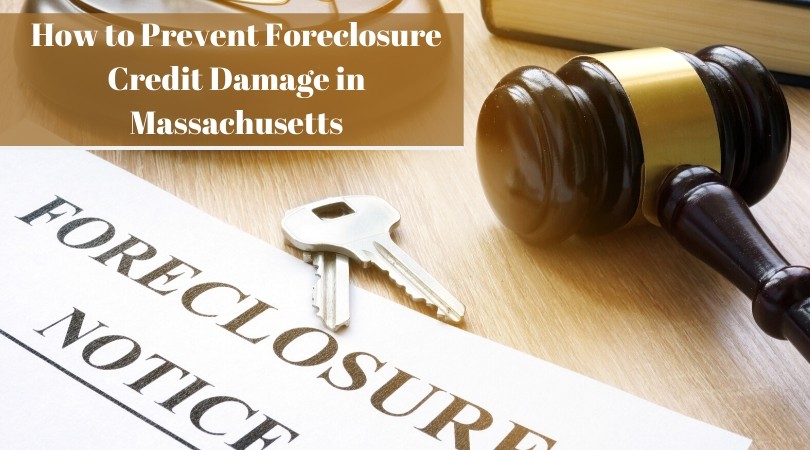The Notice of Default: Whether it’s on the way, or you’ve already received one, it’s time to take steps to prevent bad credit from foreclosure. Going into default will affect your credit; however, there are strategies to minimize the severe impact on your credit score. Knowledgeable specialists can assist with finding the best path, letting you maintain credit, and possibly prevent foreclosure. Seeking education is the first step in preventing credit damage from foreclosure.
What is Foreclosure and How Much will Foreclosure Hurt My Credit Score?
Foreclosure is the legal process that begins when you stop making your loan payments. If you don’t settle within a specific time frame, your mortgage lender is legally entitled to recover your property through trustee sale and collect as much of the loan amount as possible to correct the deficiency.
However, there is good news: foreclosures, short-sales, and deed-in-lieu only drop your credit score by 85 to 160 points depending on the credit you already have. If you have a higher credit score – that you are trying to maintain – expect more points to be deducted from your credit score. That may or may not seem like a lot, but it’s less damaging than bankruptcy: you’ll be looking at a score decrease somewhere between 130 and 240 after discharge of debt.
Keep in mind, you may owe taxes on any amount forgiven by your lender and expect the credit recovery process to last from three to seven years, or possibly less if you take control early. Preventing the foreclosure process before it starts – even before the purchase of the home – is the most effective strategy to keep your good credit.
How Do I Minimize the Damage To My Credit When Facing Foreclosure Proceedings In Massachusetts?
Preventing foreclosure is the most effective way to minimize the damage to your credit. When you know you’re going to be late, or if you already are, contact your lender and talk to them about your options. Many private and government-sponsored loan programs can help you bring your loan current and make payments more affordable.
Owning a home is a big commitment – and so is keeping it. A plan will help you look at the scope of homeownership objectively. Will this house help you grow your income and keep it stable?
If you’re not a homeowner yet, consider whether buying a house is a good option based on your lifestyle and stability of income. In any case, prepare a budget forecast for the next five years using realistic financial inputs and outputs that balance your needs and wants.
Contact a specialist who is knowledgeable about how to get out of foreclosure quickly with minimal damage to your credit. As part of your due diligence and planning, consult a financial counselor for assistance with developing a plan to help you identify alternative strategies to avoid foreclosure and bad credit.
If you really can’t afford to keep your home, don’t do it. Alternatively, consider renting your property or selling to investors for cash. You may also be able to convert it to an investment property, rent it out, and find more affordable accommodations for yourself – while also generating passive income.
Don’t wait for cash-for-keys. Take proactive steps to control your story.
How Do I Repair My Credit After Foreclosure?
Here’s what you can do to repair your credit after foreclosure:
Either on your own or working with a credit repair professional, you can reach out to creditors and the credit bureaus to request that any incorrect or outdated information be removed from your credit report. In terms of direct action, that’s about the best you can do to make an immediate credit improvement.
Beyond that, financial management is the best strategy. At this point, you’ll have to adjust your spending to fit your income and expenses. In your financial plan, include your car, phone, current bills, food, and entertainment budget – all of which must be accounted for and monitored.
Evaluate your bills and eliminate unnecessary spending. It’s 2020 and now is the time to determine the underlying cause of your foreclosure. Additionally, financial management is good for the mind and body: Cleaning out your budget feels just as good as organizing your home or office.
Furthermore, creating a plan with a financial professional to deal with foreclosure will help you determine what type of approach will fit best with your life and homeownership goals. They can help you bring together all of your finances, whether business or personal, and create a plan that enables you to repair your credit more quickly after foreclosure.
Choosing the Best Route
During the process, you’re likely to feel trapped but keep faith: you do have options. Start by talking to your lender to see if any payment arrangements or loan modifications are possible. Also, contact a foreclosure counselor for guidance and support.
Detailed budgeting helps prevent bad credit from foreclosure. Create a plan with realistic financial spending and expenses. When you’re ready to buy your next home, consider the best size and value of home for your needs and make your mortgage payment a priority. Seek professional advice from someone who can help objectively formulate a plan to prevent foreclosure credit damage in Massachusetts.
Choosing the best route can be tedious and often requires advice from someone who understands real estate and financing. They may provide options such as loan modifications, financial counseling, renting your property, or selling to an investor to prevent foreclosure and the associated credit consequences.



